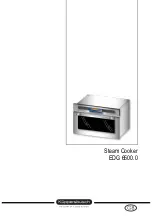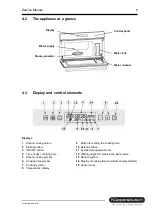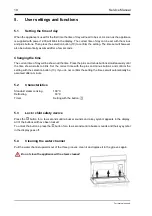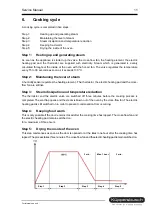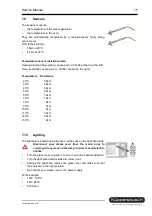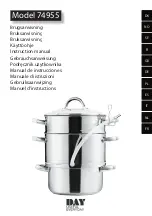
6
Service Manual
For internal use only
3.
Installation
3.1
Installation instructions for technicians
•
Statutory regulations and the connection specifications issued by local power supply companies
must be strictly observed.
•
Always disconnect the appliance from the mains when installing it, carrying out repair work or
replacing a light bulb. Pull out the plug of the appliance or disconnect the fuse.
•
The appliance must be installed in such a manner that it is fully protected against accidental
contact.
•
The appliance is supplied ready to be plugged in. It may only be connected to a properly-protected
wall socket. Installing and wiring sockets, exchanging terminal wires and zero conductors and
replacing connection cables may only be performed by an electrician who must observe the
relevant regulations.
•
The electrical connection must be provided with a 10A safety fuse.
•
Should the plug not be accessible subsequent to installation, a universal disconnection device with
a contact clearance of at least 3mm must be available at the installation point in order to fulfil
relevant safety regulations.
•
Built-in kitchen units for steam cookers must be resistant to heat of up to 100°C. This applies
particularly to veneers, edge strips, plastic coatings, adhesives, and paints and varnishes.
Adjacent unit fronts must be resistant to temperatures of up to at least 70°C.
•
It is essential that the appliance be installed horizontally on a firm, level base which is absolutely
rigid.
•
The kitchen unit must be fixed to the wall, using an angle bracket if required.
•
A safety switch that conforms with regulations will need to be fitted onto the mains cable if the
appliance is to be permanently connected. If not, the mains plug will need to be accessible when
the appliance has been installed.
•
Do not use the appliance if the electrical mains cable or the plug has been damaged; the
respective damaged part is to be immediately repaired or replaced.

